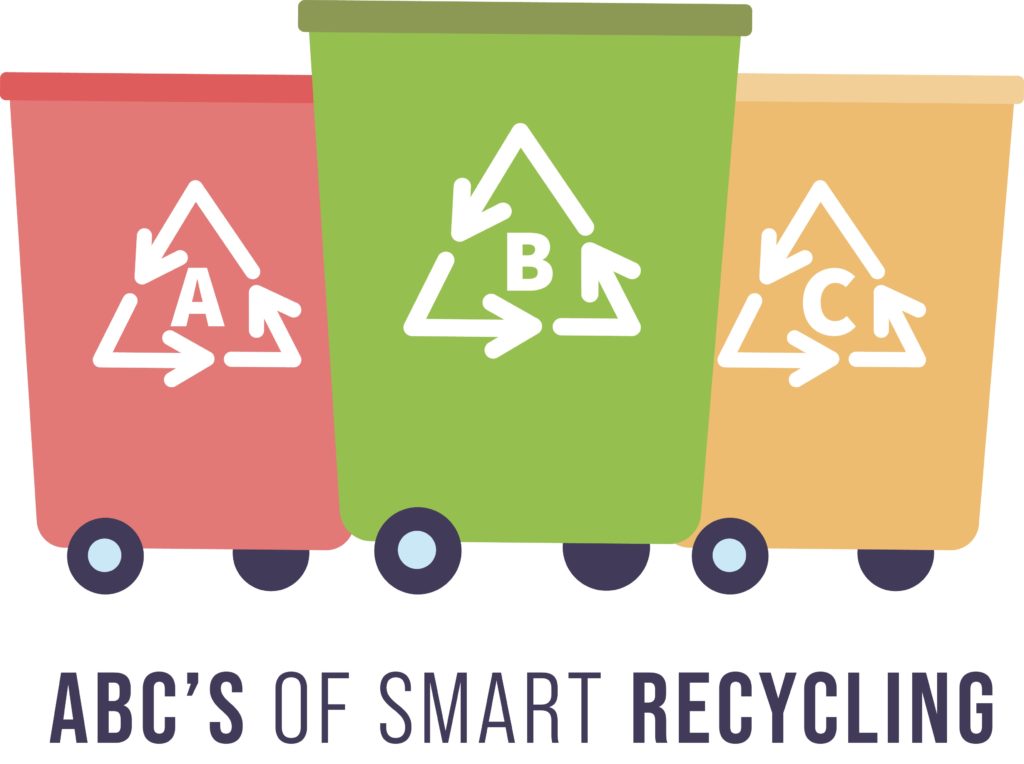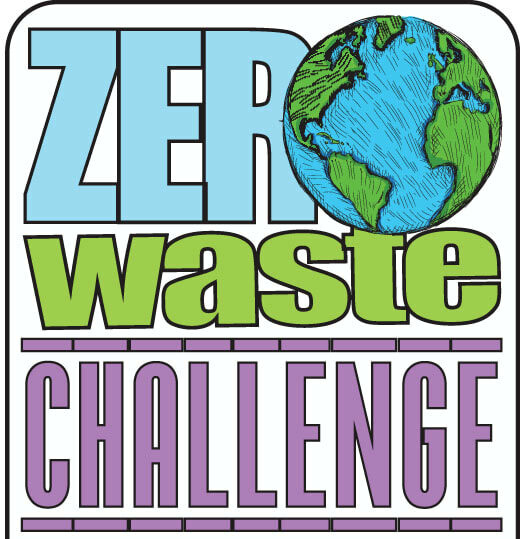ABC's of Recycling,
Z is for Zero Waste
Feb 26 2024

ABCs of Smart Recycling is going Zero Waste
What does Zero Waste mean?
Nature doesn’t have waste. Everything cycles around. Leaves turns sunlight into energy, then drop, decay and feed the roots, that send energy back up to make leaves again. No waste!
According to the EPA, zero waste might be a long-term goal. Many people think of it as a philosophy that considers the lifecycle of everything around us and everything we use, then tries to eliminate waste by planning ahead and by recovering resources.
It’s a Process
Zero waste doesn’t happen overnight.
It’s something to work toward. But that doesn’t mean it’s impossible!
Both individuals and organizations have committed to a zero waste environment in the coming decades. Businesses, universities, school districts, cities and states all over the country have set goals to move toward zero waste. In practice, that means making changes such as adding composting, changing products to reduce packaging, as well as choosing tools or materials that are long lasting. It means planning ahead to prevent waste before it happens.

For example, bringing a container for leftovers, instead of asking a restaurant to package something after a meal. Using your own bags at the store, or bringing a personal cup to the coffee shop are also ways of reducing waste just by planning ahead.
Zero waste helps increase all kinds of efficiencies, because waste of any kind is really a sign of inefficiency. A zero waste economy needs fewer raw materials. And doesn’t need ever expanding landfill. In a zero waste economy, we might only exchange parts of our phones to run faster operating systems. The old parts would then sent back to a factory, and retro fitted to be used again. In this case, fewer raw materials would be needed than creating a whole new phone.
Many towns and counties, as well as universities, even large companies have zero waste plans in the works. By adopting zero waste principles, we can move everyone toward sustainable production and consumption.
How Can I Get to Zero?

The people who live a serious zero waste lifestyle go beyond the 3Rs, reduce, reduce and recycle.
They level up to 5 Rs and add refuse and rot.
- Refuse things you don’t need. Getting take-out? Remind the store you don’t need plastic serving ware. Take steps to eliminate junk mail. Buy in bulk when you can.
- Rot what you can. Composting food scraps, toilet paper tubes and garden materials can help your soil while slimming your waste.
Want to jump start your zero waste journey with a crowd of friends? Try taking part in “Plastic Free July” or later in the year, try the “October Zero Waste Challenge.” Websites such as ZeroWasteChicago and zerowaste.org are also good sources for how to begin or add to your practices.
Our ABCs of Smart Recycling have led us to the final letter and the perfect way to end.
Smart Recycling is one important step on the path to zero–Zero Waste!